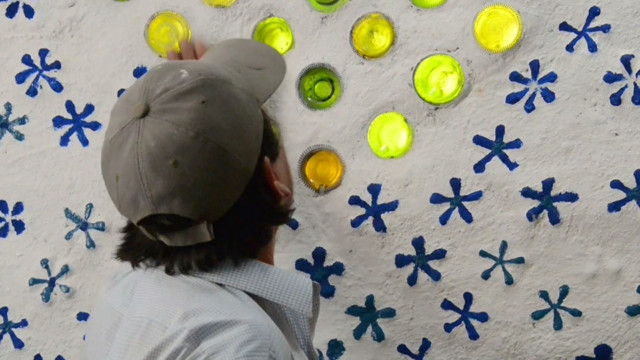The fallout from last year’s September 19 earthquake in Mexico continues to reverberate around the country, as the worst-affected communities pick up the pieces. Yet one group of people have come across an efficient way to rebuild.
CGTN’s Alasdair Baverstock reports.
Situated on the slopes of Popocatepetl, Mexico’s most active volcano, the town of Tetela del Volcán was devastated by last year’s earthquake.
Just 50 kilometers (31 miles) from the epicenter, many of the town’s impoverished residents saw their houses collapse, and their lives along with them.
Six months on, some of the worst-affected are still sleeping in the streets, and so, led by Lucero Sanchez, a group of concerned neighbors has been working to offer a solution.
“I couldn’t stand to see people sleeping outside in the cold, while my own two children were sleeping in their beds under a solid roof,” Sanchez said. “I knew we had to take action.”
Lucero enlisted the help of a post-quake emergency housing initiative, based in Tijuana, on Mexico’s northern border, who construct shelters with recycled plastic bottles filled with sand.
The team flew down and began work with Lucero and her neighbors immediately following the news of the devastation that had laid much of Central Mexico to ruins.
So far, three houses have been built, with a further three being planned for those still affected.
“It has been a blessing for my family,” said Fanny Gonzalez, who lost everything in the 8.2 magnitude tremor.
“Following the disaster, we were forced to sleep in a stable alongside my husband’s animals, and the unsanitary conditions caused my children to become very sick.”
Fifteen-thousand recycled bottles are required to build a 40-square-meter house, big enough for a family of four. Complete with running water, electricity and drainage systems, the houses are more complete than many of the structures previously inhabited by their owners.
“It’s about giving people dignified housing,” Lucero says.
Mauro Garcia inhabits one of the bottle houses, and says he now sleeps easier.
“We’ve had a number of smaller tremors since the big one last year,” he explained, “but the house has stood firm. We’re very confident about our future.”
While few in the town of Tetela believed in the project before its realization, many are now inquiring over how they too can get involved, with the ultimate hope of turning common street trash into the building blocks of a safer future.
 CGTN America
CGTN America

